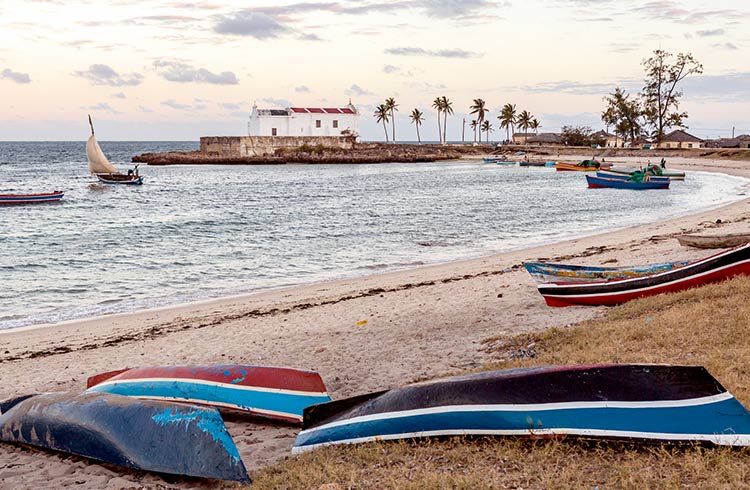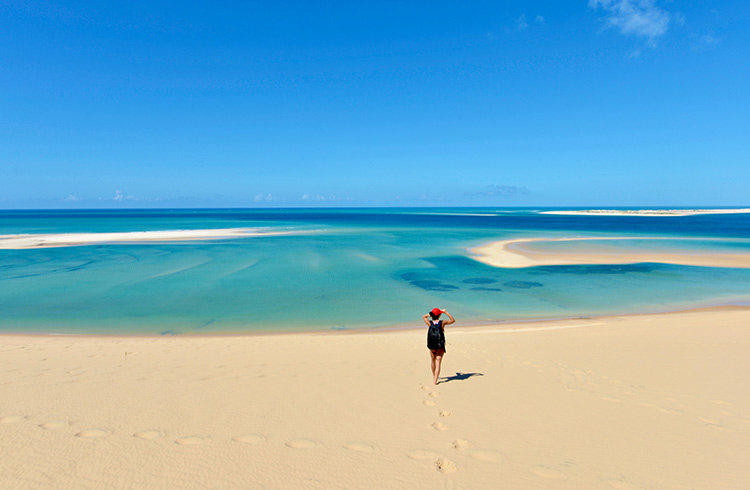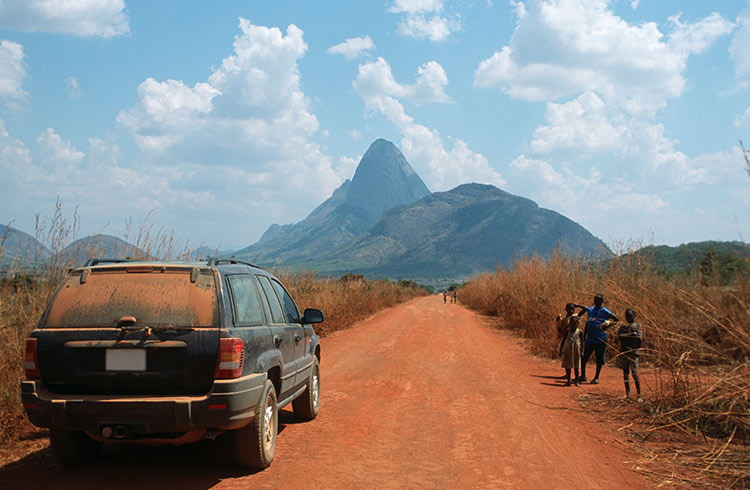Transport in Mozambique: How to Get Around Safely
Whether you are taking public transport or self-driving the country, there are things you need to consider before you go. Here are our tips for getting around Mozambique safely.
 Photo © Getty Images/John Seaton Callahan
Photo © Getty Images/John Seaton Callahan
So you're off to Mozambique. You must be the sort of adventurous traveller we like to see here at World Nomads! But before you jet off to a hazardous African country, go ahead and read this article to learn some do's and don'ts when in Mozambique.
Driving in Mozambique
After its civil war, Mozambique's road network was as ripped apart as the country. Things are much better today, as most major roads have been resurfaced and offer a smooth ride between major destinations.
But potholes remain the biggest road hazard in the country. Though hideous driving habits and reckless pedestrians also help claim many lives on a monthly basis. In just one week in April 2010, 94 recorded traffic accidents resulted in 40 deaths and 78 serious injuries.
If you're driving, avoid travelling at night, as the risk of hijacking increases and emergency help is hard to come by. Fatal crashes and pedestrian accidents are also common after daylight.
Police checkpoints are common throughout the country, and everyone should obey the signals from officers. To avoid trouble, always carry your driving license, vehicle registration, temporary import papers and two emergency triangles. And wear your seatbelt.
If you get stopped by the police, they are mandated by law to show identification and you have the right to ask for it. If you receive a fine, ask for a receipt and for the specific article from the transit law that you violated.
Car rental agencies are required by law to provide a letter of authorization to the client. Cars with a foreign registration have to pay a third-part insurance and road tax, which is about 600Mts, or US$23. Failure to have one can result in huge fines. If you get in an accident without one, expect jail time.
Safe public transport in Mozambique
Visitors normally travel by taxis, but real adventurers can try their luck at public minibuses (chapas). Like any other country in Africa, when taking a cab you should negotiate the fare beforehand and only pay on arrival.
Don't expect taxis to be significantly more comfortable than the bus. You'll find missing seats, mirrors held together with tape, and threadbare tires. Be prepared for breakdowns.
In Maputo the flat rate for any taxi trip within the city centre is 200Mts. For a destination farther that that, the fare doubles.
As for the chapas, it's a small miracle they run at all. Riding one is a great simulation of an earthquake; you might see the interior gradually come apart.
Still, it's the cheapest way to get around and prices are fixed for main routes. Know the price of the journey. If you ask the fare collector, he might try to rip you off by quoting a higher number.
Landmines in Mozambique
Landmines shouldn't be a concern if you stick to main roads, especially in the northern provinces. If you're planning some off-road driving, get reliable information.
In the central-south provinces of Sofala, Tete, Manica, Gaza, and Inhambane, mines may still be buried and armed, although demining operations are underway (some of them using specially-trained rats).
If taking the road to South Africa, be extra cautious. Robberies, assault, and car theft have been reported. If heading north of Maputo, know that you will have to take a ferry across the Zembezi River at the city of Caia.
Related articles
Simple and flexible travel insurance
You can buy at home or while traveling, and claim online from anywhere in the world. With 150+ adventure activities covered and 24/7 emergency assistance.
Get a quote

4 Comments
"It's illegal to leave the country with any sum of money above 500Mts."
Are you sure it's 500Mts? It doesn't make sense...
Thanks.... article needs an upgrade. We're on to it.
Phil at World Nomads.
Hey
Where is that road the landrover is on?
Thx Chris
Do you have travel guide for Mozambique? All I find is specific stuff like health and safety If you do please send